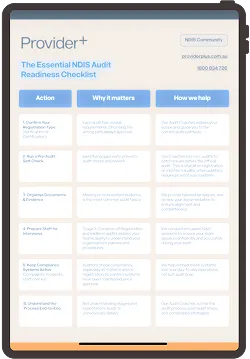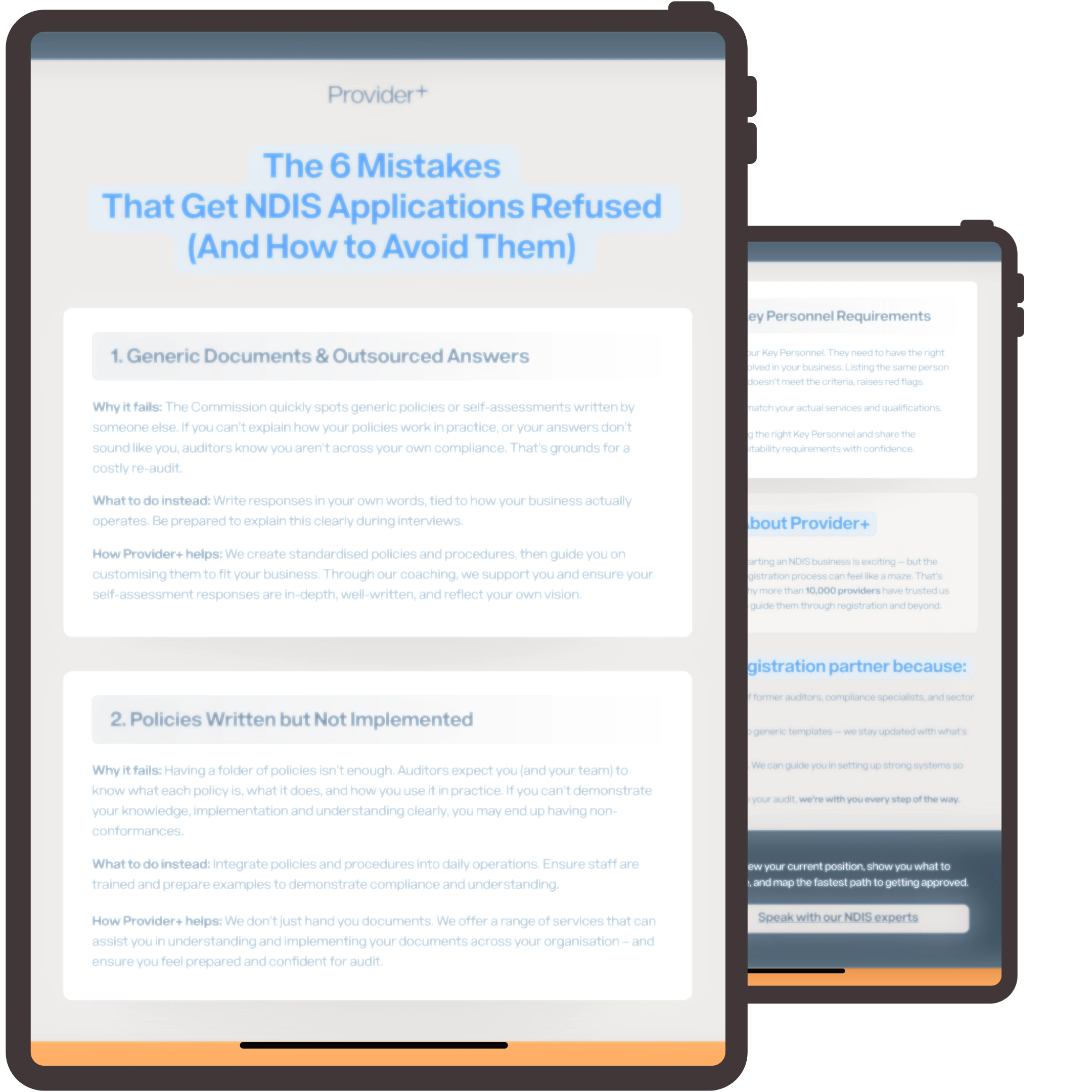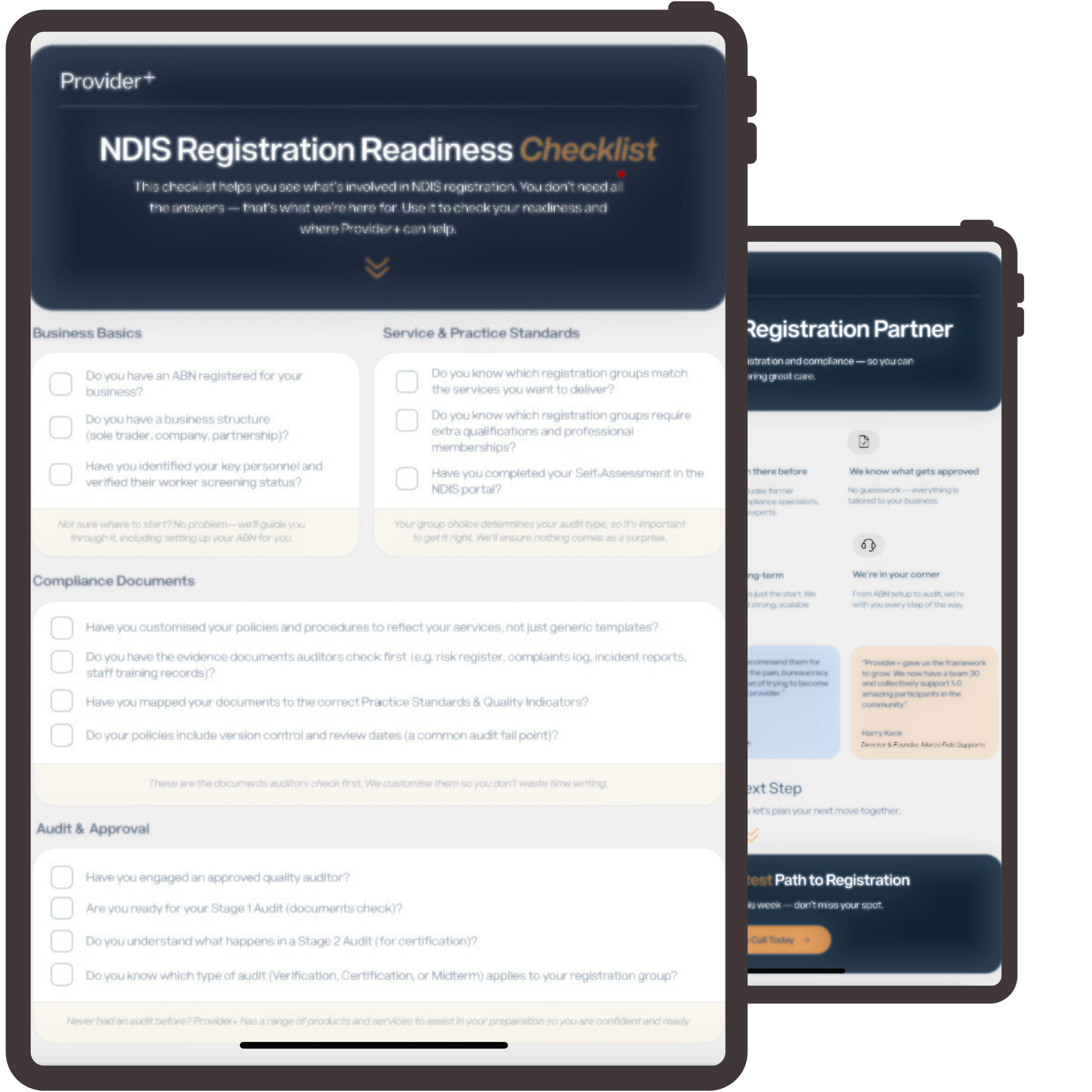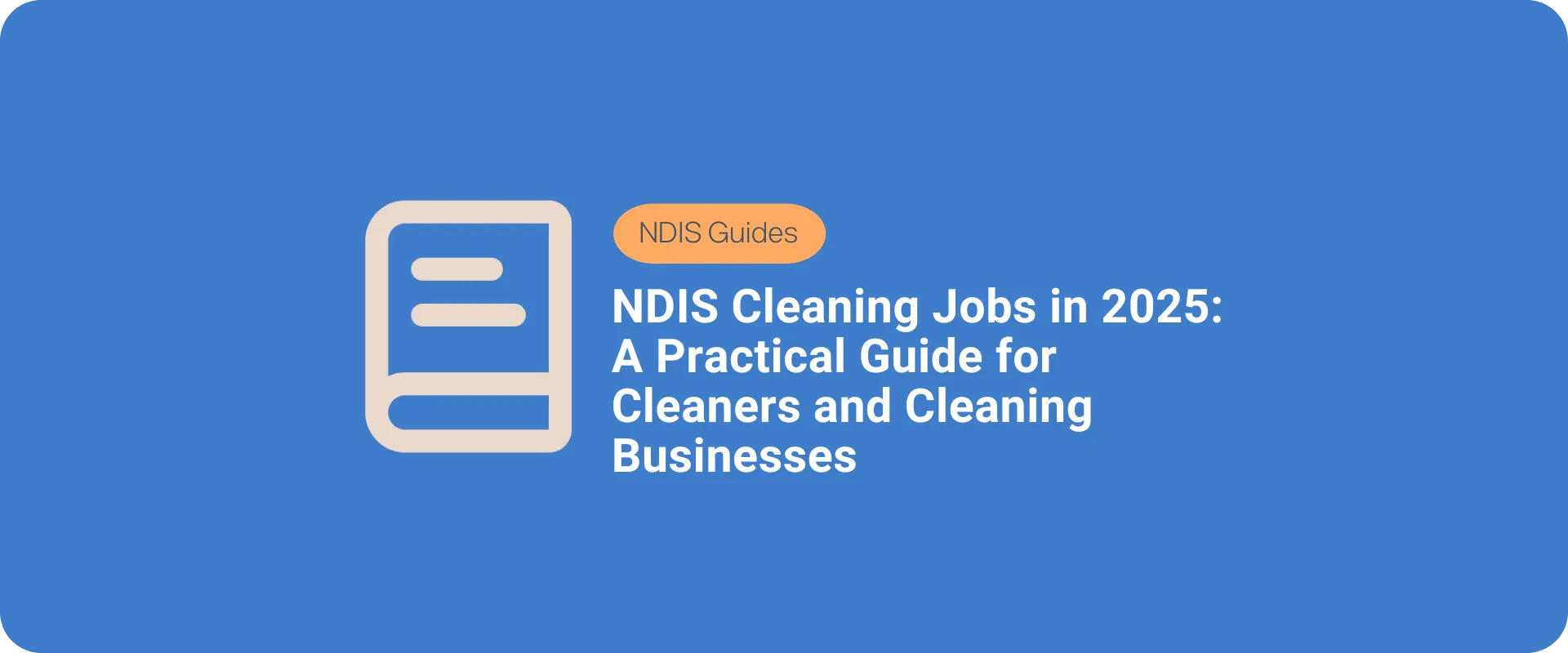A Practical Guide for NDIS Cleaners and Cleaning Businesses 2025
Working in the National Disability Insurance Scheme (NDIS) space can be incredibly rewarding, especially for those helping people with disability maintain clean, safe, and comfortable homes. In 2025, cleaning continues to be one of the most in-demand services under the NDIS, formally categorised under the support group “0120 Household Tasks.”
Whether you’re an individual cleaner or you run a cleaning business, this guide will assist you in understanding what you need to know about becoming a registered or unregistered NDIS provider, what compliance involves, and how to deliver exceptional service to NDIS participants. It is crucial to hire individuals who are passionate about helping others and have relevant service experience.
Why Cleaning Services Matter Under the NDIS
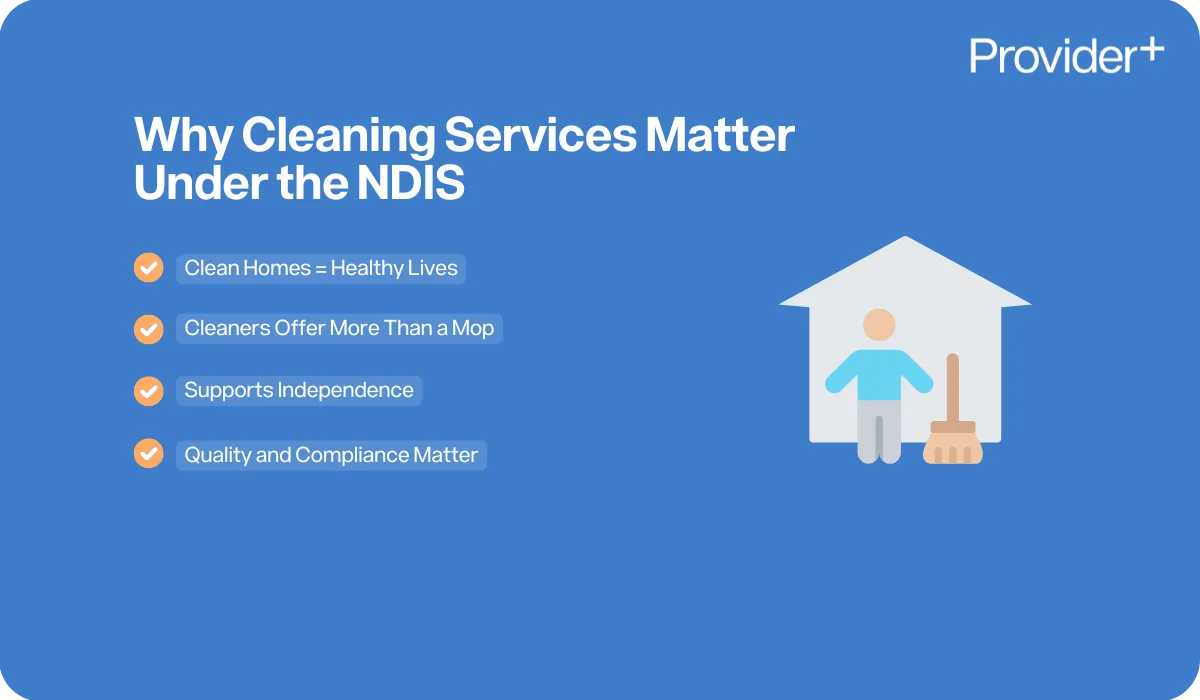
Cleaning services funded through the NDIS are about more than just hygiene. They support participants’ overall health, well-being, and independence. A clean environment reduces the risk of illness, supports mental health, and provides dignity. For many participants, their friendly NDIS cleaner may be one of the few regular social contacts they see each week – so kindness, respect, and a reliable presence matter. These services make a significant difference in the lives of NDIS participants by enhancing their quality of life and promoting autonomy.
While cleaning may seem like a basic support, its impact is anything but. In fact, respectful and consistent cleaning services often contribute significantly to a participant’s ability to live autonomously and feel secure in their home. Ensuring compliance with NDIS requirements is crucial to maintaining high-quality services and providing the best care to clients.
Who Can Deliver NDIS-Funded Cleaning?
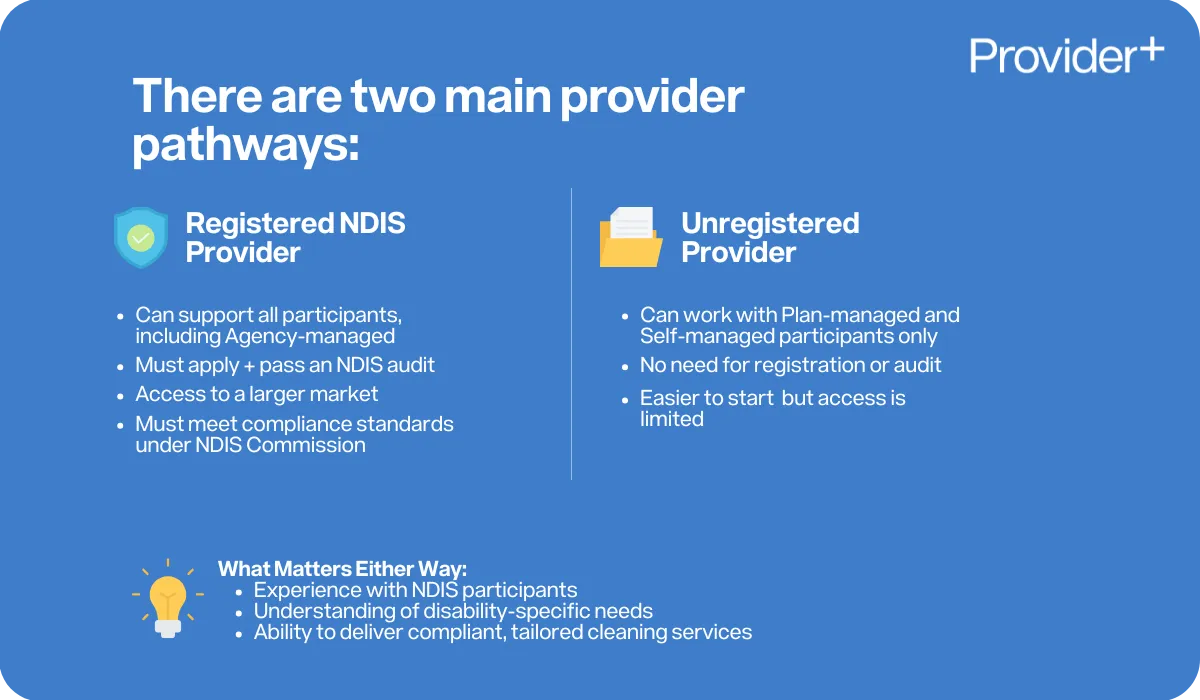
There are two pathways to providing cleaning under the NDIS:
- As a Registered NDIS Provider – which allows you to support all participants, including those with Agency-managed funding.
- As an Unregistered Provider – which limits you to working only with plan-managed and self-managed participants.
Being registered gives you access to a larger part of the market but involves going through an application and audit process with the NDIS Quality and Safeguards Commission. Having experience in providing services to NDIS participants can be crucial, as it ensures you understand the specific needs and can tailor your services effectively. Adequate knowledge related to working with individuals with disabilities is essential, as it helps in understanding compliance and operational standards.
Do You Need to Register Your Cleaning Business?
Registration is not mandatory for all NDIS cleaners, but it may be the right choice depending on your goals. Here are the key differences:
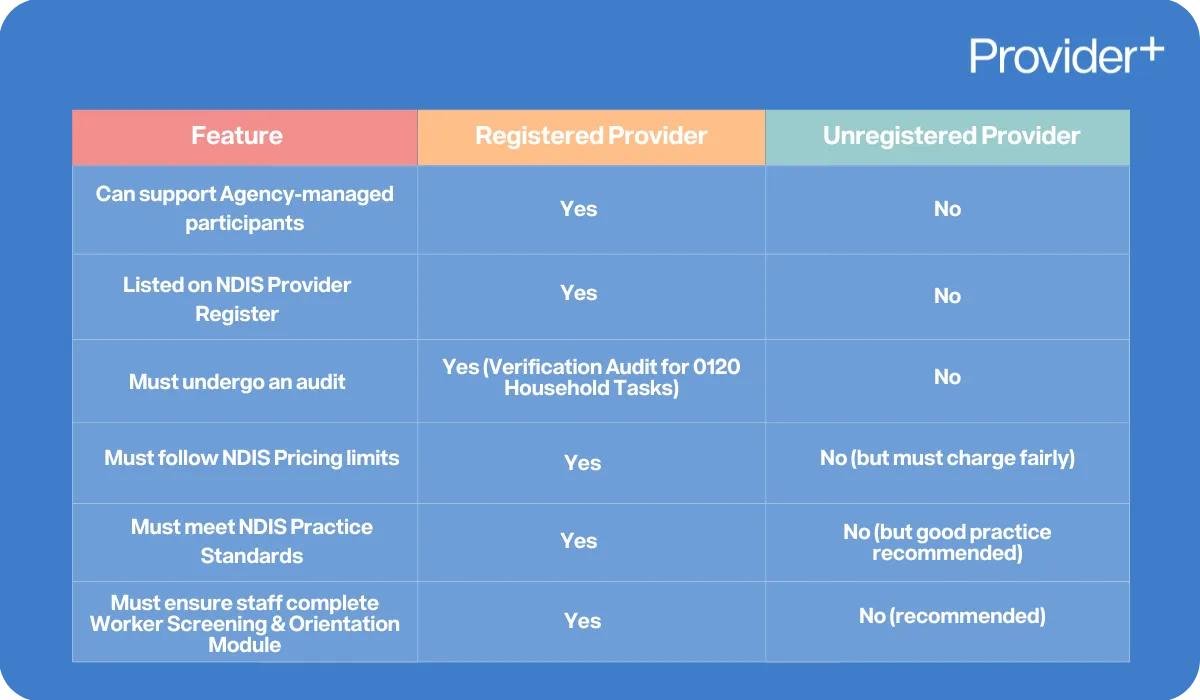
If you want to support Agency-managed clients or want to demonstrate formally that your business meets high quality and safety standards, registration is the best route. Ongoing support is crucial to navigate the registration process and maintain compliance.
Ensuring compliance with NDIS requirements is essential to maintain your NDIS approval and provide the best care to clients.
How to Register as an NDIS Cleaning Provider (Step-by-Step)
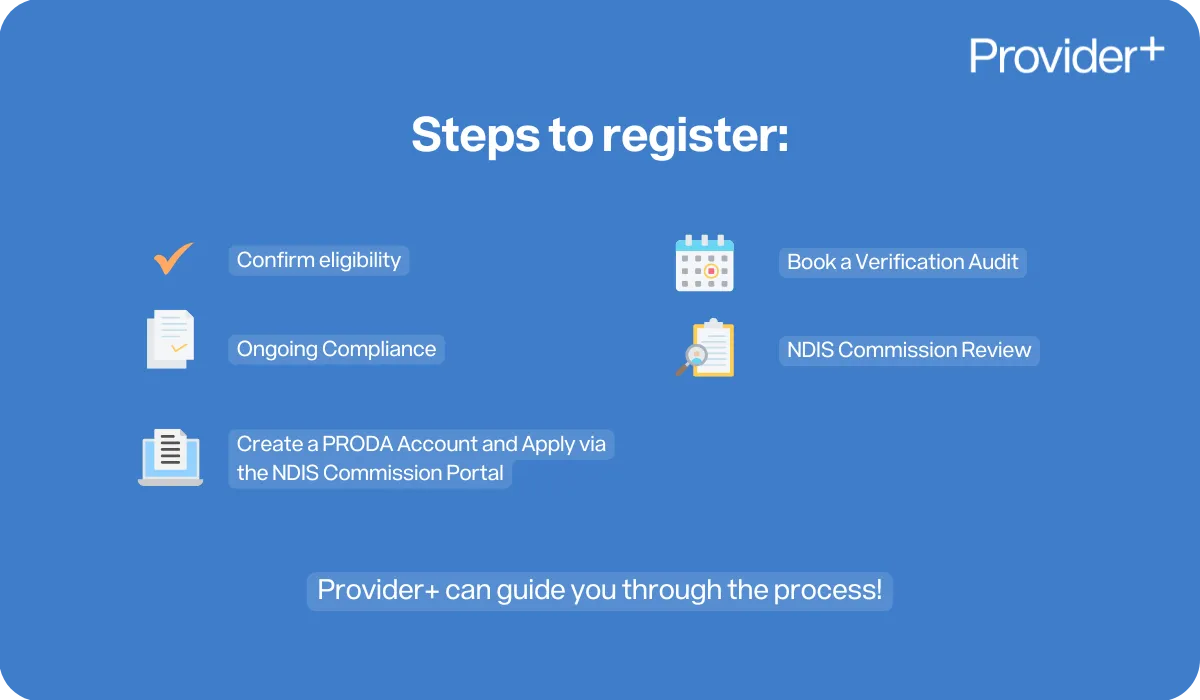
If you choose to become registered, here’s how the process works:
1. Confirm Eligibility:
- You must be a legal entity (sole trader, company, partnership).
- Hold appropriate insurances (public liability, etc.).
- Pass a suitability check (no relevant criminal convictions or bankruptcy).
2. Create a PRODA Account and Apply via the NDIS Commission Portal:
- Choose “0120 Household Tasks” as your registration group.
- Complete a self-assessment against the NDIS Practice Standards.
- Upload supporting documents, including your policies and procedures.
3. Book a Verification Audit:
- You will need to engage an Approved Quality Auditor to assess your documents.
- Undergo a desktop (off-site) audit focused on key compliance areas: Human Resources, Risk Management, Complaints, and Incidents.
4. NDIS Commission Review:
- The NDIS Commission assesses your audit results and overall application.
- If successful, you receive a Certificate of Registration (valid for 3 years).
- Ongoing support is provided to help maintain compliance and navigate any complex requirements.
5. Ongoing Compliance:
- Maintain records, policies, and incident reporting systems.
- Ensuring compliance with NDIS requirements is crucial to maintain your approval and provide the best care to clients.
- Renew your registration and complete audits every 3 years (or sooner if required).
Working as an Individual Cleaner (Without a Business)
If you’re not running a business but want to work as a cleaner for NDIS participants, you can:
- Work for an existing registered NDIS provider.
- Work independently for plan-managed or self-managed participants (if not registered). By doing so, you can assist NDIS participants by providing tailored cleaning services and handling service agreements.
Even if you’re not registered, it’s good practice to:
- Complete the NDIS Worker Orientation Module (“Quality, Safety and You”)
- Apply for an NDIS Worker Screening Check (required if working for a registered provider)
- Learn the NDIS Code of Conduct
You can offer cleaning services on a weekly, fortnightly, or monthly basis, providing flexibility to meet the varied needs of your clients.
These steps help you stand out as a trustworthy and capable provider, and many participants value cleaners who are proactive and professional.
Understanding the NDIS Code of Conduct
All NDIS workers – registered or not – must follow the Code of Conduct. It includes:
- Acting with respect for participant rights
- Providing safe, competent, and caring support
- Acting honestly and transparently
- Reporting concerns or risks
Ensuring compliance with the NDIS Code of Conduct is crucial for maintaining approval and delivering high-quality care.
This means showing up on time, being respectful in someone’s home, handling chemicals safely, and keeping communication clear and professional.
Ongoing support is provided to help workers and businesses maintain compliance with the Code of Conduct, ensuring they continue to meet all necessary requirements.
Best Practices for Delivering NDIS Cleaning Services
Whether you’re just starting out or looking to improve your service, these tips will help:
- Clarify the Cleaning Scope: Agree on specific cleaning tasks with each participant. Use a written service agreement where possible. Accommodate specific customer requests, including preferences for cleaner gender.
- Use Safe Products: Ensure you use appropriate PPE, label all chemicals, and keep Safety Data Sheets (SDS) for all products used. Use eco-friendly cleaning supplies to meet customer preferences.
- Bring Necessary Equipment: Ensure professional cleaners arrive fully equipped with all necessary cleaning equipment, relieving clients from having to provide their own.
- Schedule Regular Risk Assessments: Check for hazards like loose rugs, pets, or difficult access points.
- Communicate Proactively: Send reminders before visits, check in on participant preferences, and confirm any changes in schedule.
- Protect Privacy: Always knock before entering a room, ask before moving items, and never discuss a participant’s details with others.
- Document Everything: Keep a log of visits, tasks completed, and any incidents or complaints.
- Be Reliable and Consistent: Participants need to trust you’ll show up and do what you say.
Provider+ Can Help You Register
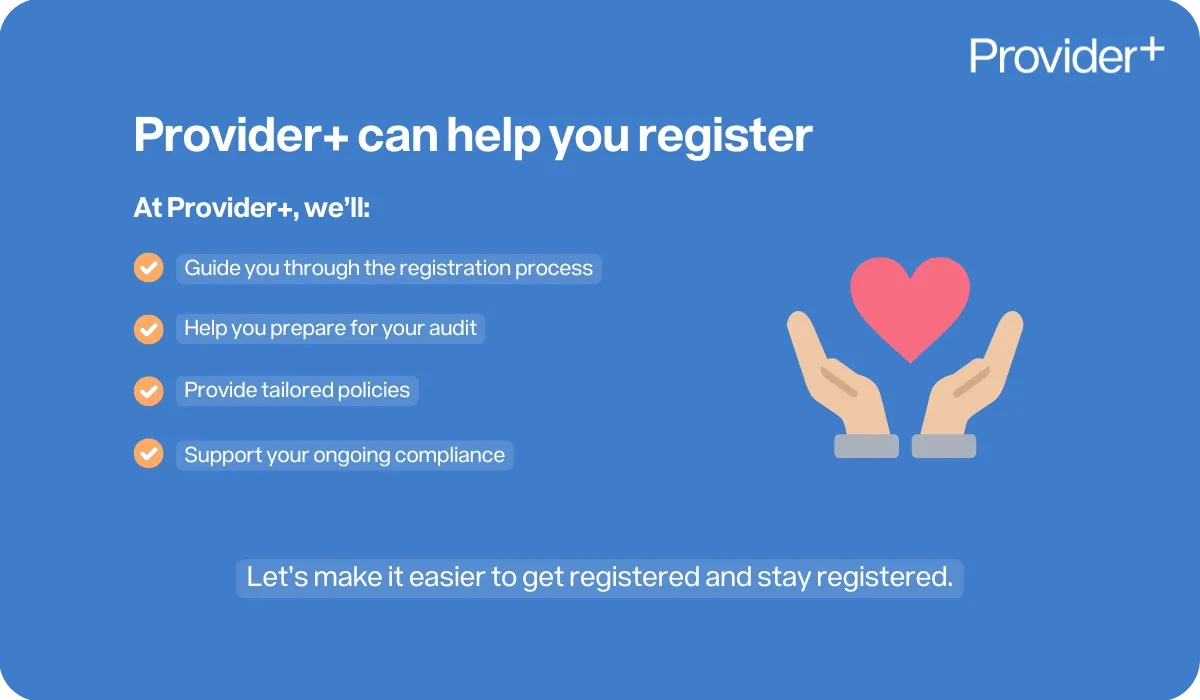
If you’re feeling overwhelmed by the registration process, you’re not alone. Many NDIS cleaners and small businesses find the paperwork and audit requirements daunting.
At Provider+, our consultants specialise in helping you register your business with the NDIS. We:
- Guide you through the entire registration process
- Assist you to prepare your audit documentation
- Offer policies tailored to household task providers
- Provide ongoing compliance support after you’re approved
- Provide ongoing support to ensure you navigate complex requirements smoothly
We make the process simpler, less stressful, and you are more likely to succeed by ensuring compliance with NDIS requirements throughout the registration and ongoing service processes.
Final Thoughts
The demand for reliable, respectful, and professional cleaning services under the NDIS is only growing. Whether you choose to register your business or remain unregistered, success in this space depends on understanding your obligations, building trust with participants, and delivering services that respect both safety and dignity. Having friendly cleaners can significantly enhance the experience for participants, making them feel more comfortable and valued.
Ensuring compliance with NDIS requirements is crucial to maintaining high-quality services and retaining your NDIS approval. By doing so, you’re not just offering a clean home – you’re helping participants live more comfortably, independently, and with greater confidence in their daily lives.
